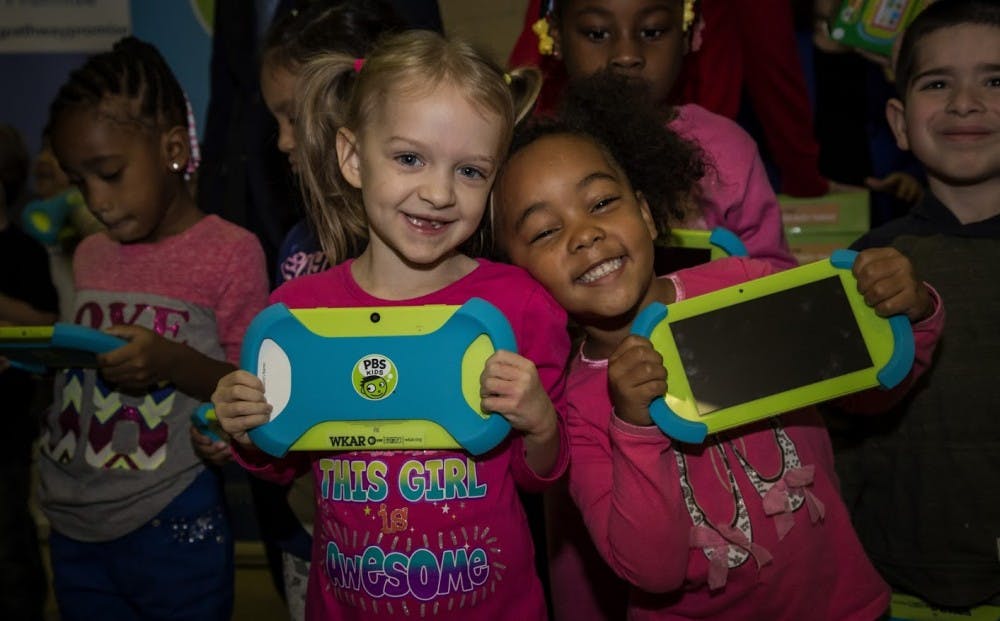A partnership between PBS, WKAR, the Lansing School District and Michigan State University’s College of Education and College of Communication of Arts and Sciences will provide all kindergarteners in the Lansing School District with a PBS KIDS Playtime Pad by the end of December.
The Playtime Pad Research Project will investigate whether or not these tablets are effective in learning initiatives among these young students.
The project hopes to help kindergarteners with math literacy through a more creative platform, WKAR Content and Community Engagement Manager Julie Sochay said.
Through its funding, WKAR is able to donate a total of 1,005 Playtime Pads to kindergarteners in the Lansing School District, according to Sochay.
“The big goal is to hopefully study and look at how students learn using tablets, how tablet-based learning can help in study,” she said.
The research project will be taking on a few different forms when it comes to observing the students and collecting data, according to Sochay. There will be data collected from the back end of the tablets, but there will also be two researchers observing the classrooms.
“There will be a component of literacy involved in that, simply because there will be reading involved in the app,” she said. “The main focus of this initial study is to focus on math learning. There will be additional aspects to the study added in the future years.”
MSU Department of Teacher Education associate professor Amy Parks thinks this project is unique because researchers are able to collect data that shows how long students are interacting with the learning apps, and what questions they are getting right and wrong.
“The reason this research project is interesting is because there aren’t a lot of online applications that actually allow you to collect data on how the application is being used,” Parks said.
According to Parks, she and colleague Laura Tortorelli have been the primary faculty members involved in the Playtime Pad Research Project from the College of Education’s end. They have been meeting with others involved in the project, gaining permission from parents, teachers and children to collect anonymous data and choosing which math games are loaded onto the tablets.
“PBS has this handful of games that provide that kind of data,” she said. “So, we reviewed those games and then chose the ones that we thought were the most likely to promote mathematics learning for kindergarteners.”
Parks said that this research project is important for these students because it will allow the researchers to discover whether or not utilizing technology will help them learn mathematics.
“We don’t know a lot about how these devices can best be used to promote learning, and there’s no reason to think that just throwing technology at kids is actually going to make them learn,” she said. “So, it’s really important to understand what kinds of interventions might work and what kinds of interventions are a waste of time and money.”
College of Communication Arts and Sciences Dean Prabu David said that the research project began purely as an outreach effort to help young students in the community.
“We thought that by giving them a tablet, it would be a great thing,” he said.
Once the outreach effort was combined with a research element, the collaborators of this project were able to provide the students in the Lansing School District with a lot more tablets than originally thought.
“By tying research to outreach, we have extended our chances to get funding for future years,” David said. “Initially, we were going to give away only 200 play pads."
Overall, the general goal is to see if technology is helpful when it comes to teaching young students.
“Broadly, the bigger, long-term objective is to get a good understanding of how does technology work in the hands of little kids?” David said. “Technology can be useful or it could be harmful. We don’t know yet. And that’s what we’re trying to study.”
Support student media!
Please consider donating to The State News and help fund the future of journalism.
Discussion
Share and discuss “All kindergarteners in Lansing school district to receive tablets” on social media.







